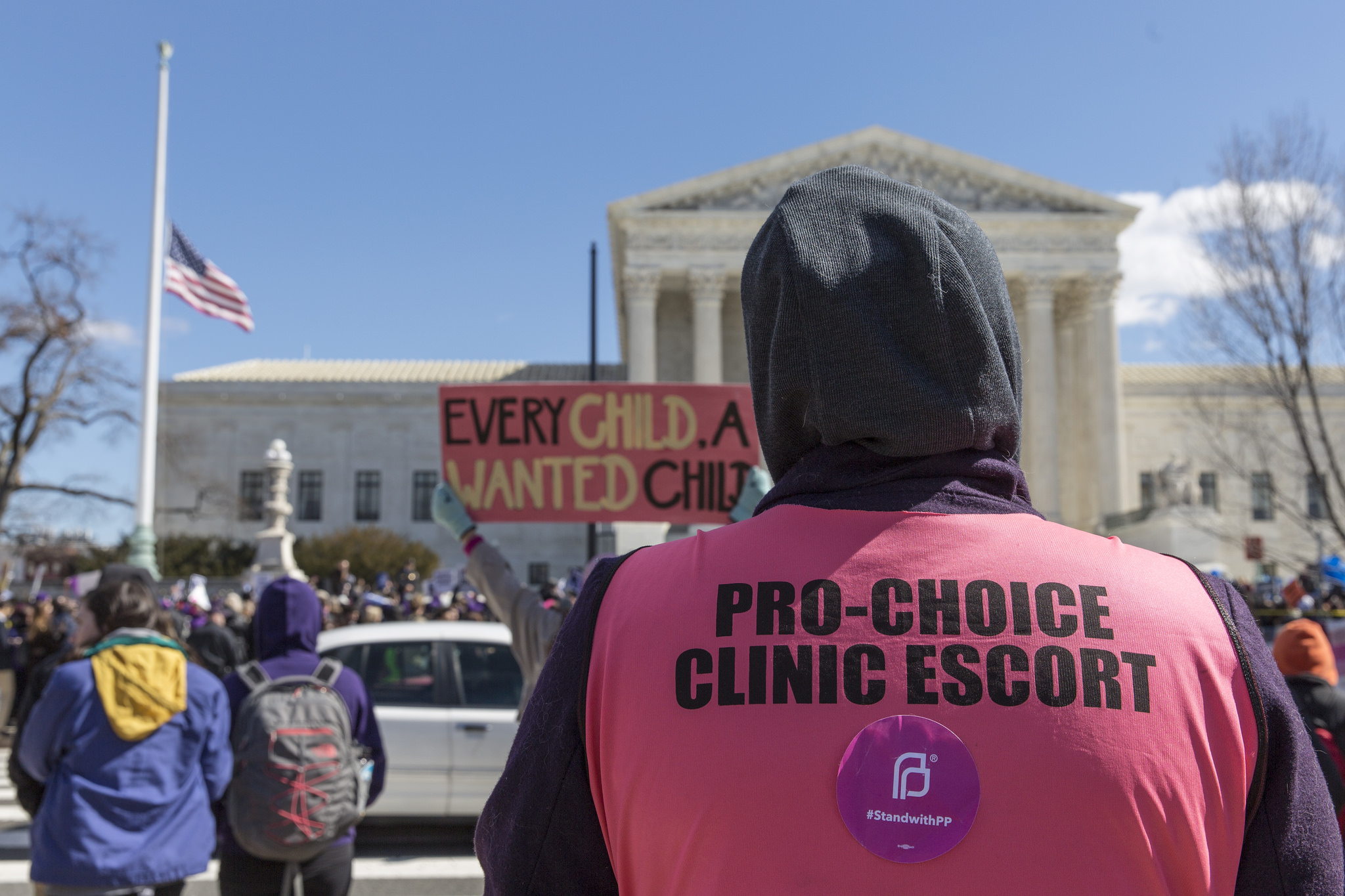Extremist Anti-Abortion Laws are Undermining Legislative Progress in States

 As state legislative sessions wrap up, states, in many ways, continue to be at the forefront of advancing laws that support working families and create the equitable workplaces and communities that women need. However, it seems like we never have enough time to celebrate before harmful attacks on women’s bodies, decisions, and families follow. State legislation moving across the country in the month of May gave us no shortage of whiplash and left us more resolved than ever that any “win” for gender equity is ultimately undermined if a person’s fundamental right to decide what is best for themselves and their families is infringed.
As state legislative sessions wrap up, states, in many ways, continue to be at the forefront of advancing laws that support working families and create the equitable workplaces and communities that women need. However, it seems like we never have enough time to celebrate before harmful attacks on women’s bodies, decisions, and families follow. State legislation moving across the country in the month of May gave us no shortage of whiplash and left us more resolved than ever that any “win” for gender equity is ultimately undermined if a person’s fundamental right to decide what is best for themselves and their families is infringed.
New York City and Oregon are improving access to child care through investment in early childhood education.
Child care is essential for working parents to get and keep a job and to giving children opportunities to learn skills needed to succeed in school. Following a historic increase in the Child Care Development Block Grant in 2018, states and cities are making their own investments in child care. In Oregon, the Senate passed a historic $2 billion investment package for education. Approximately 20 percent of that package, or $400 million, is dedicated to early childhood education. Governor Brown is expected to sign the bill into law in the upcoming weeks.
In New York City, Comptroller Scott Stringer proposed a new payroll tax for the largest businesses in the city to expand access to affordable, high-quality child care for families with infants and toddlers. This proposal – called “NYC Under 3” – would help families with the cost of care. Low- and moderate-income families would pay for child care on a sliding fee scale, and care would be free for the lowest-income families. The program would benefit about 84,000 kids when fully implemented after five years. Additionally, the Comptroller calls for funding to increase reimbursement for providers currently serving infants and toddlers, subsidize the cost of training requirements and professional development, and support the construction and renovation of child care facilities.
The Maryland Governor signed a bill improving tax credits for families.
Last month, Governor Hogan signed legislation improving Maryland’s tax Credit for Child and Dependent Care Expenses. The new law will make the credit refundable for low- and moderate- income families and increase credit amounts and income limits. Maryland will join several states in offering a refundable CDCTC and supporting hard working families access quality care.
Oregon passed a law supporting pregnant workers and Colorado passed a law promoting equal pay.
At the end of May, Oregon Governor Kate Brown signed into law a bill providing reasonable workplace accommodations for pregnant workers. This makes Oregon the 26th state to enact legislation or Executive Orders requiring certain employers to provide accommodations to pregnant employees at work. In just the last six years, 21 states have passed pregnancy accommodation bills—all with bipartisan support AND, in the majority of cases, with unanimous or near unanimous support. From South Carolina to New York, Kentucky to Illinois, West Virginia to Washington, state lawmakers are recognizing that these are common-sense, common ground bills—no one should have to choose between the health of their pregnancy and their job.
On May 22, Colorado Governor Jared Polis signed into law exciting legislation strengthening Colorado’s equal pay law in several key ways. Most notably, the new law will prohibit employers from relying on job applicants’ salary history to set pay—making Colorado the 10th state to stop this wage gap-perpetuating practice. The law will also require employers to include in job postings the amount or range of compensation and benefits for the position. This is an incredibly important provision for promoting pay transparency and closing the wage gap since research shows that when job applicants are clearly informed about the range and types of compensation available, gender wage gaps are reduced.
And then a slew of states lined up to pass extreme abortion bans…
The last few months have brought the passage of some of the most extreme abortion bans in state legislatures in decades, all in an attempt to bring a challenge to Roe v. Wade to the Supreme Court. In May, Louisiana Senate Bill 184, which would ban abortion as early as six weeks into pregnancy, and Missouri House Bill 126, which would ban abortion eight weeks into pregnancy, swept through their respective legislatures. These bills follow widespread anti-abortion activity in other southern states, namely Alabama House Bill 314, which would effectively ban nearly all abortions in the state, and Georgia House Bill 481 which would ban abortion as early as six weeks.
People should be able to live autonomous, dignified lives and make decisions about their bodies without fear of being retaliated against or criminalized. We remain steadfast in knowing that you cannot be a supporter of gender equity while infringing on a person’s right to decide what is best for themselves and their families. Anti-abortion legislation does just that. As long as anti-abortion extremists continue to push harmful abortion bans, we will continue fighting back, on all fronts.




